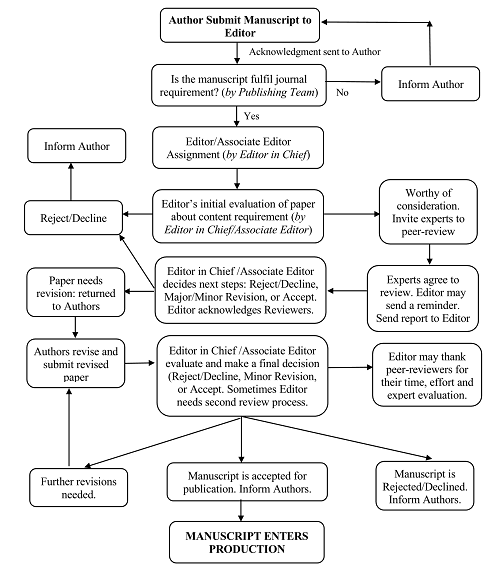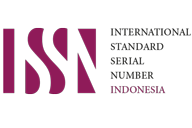- Focus and Scope
- Section Policies
- Peer Review Process
- Open Access Policy
- Journal of Family Law and Islamic Court
- Publication Malpractice Statement
Focus and Scope
Journal of Family Law and Islamic Court (ISSN: 2962-5963 (Print) 2962-5327 (Online)) is an national peer-reviewed open access journal that aims to spread conceptual thinking or ideas, review and the research findings obtained in Family Law and Islamic Courts.
Journal of Family Law and Islamic Court promotes scholarly, theoretical, pragmatic, and contemporary research, making a clear conceptual and methodological contribution to existing international literature. Its spesific aim is to enhance the broad scholarly understanding of Islamic Law, Family Law, Islamic Courts, Islamic Economics, Islamic Politics.
Submissions that focus upon the Islamic Law or Islamic Courts of any of these levels or units of analysis in a way that interestingly and effectively brings together conceptual analysis and empirical findings are welcome.
Journal of Family Law and Islamic Court is committed to disseminating rigorous, high-quality research and debate with a scientific influence on the international society. To that purpose, the Editorial team follows a meticulous editorial procedure, bringing the most sophisticated research on Islamic Law and Islamic Courts. The journal is online and has open access, and its internal publication procedure enables it to distribute its research findings internationally promptly.
Section Policies
Articles
Peer Review Process
Every manuscript submitted to the editor will be selected through an initial review process by the Editorial Board. The initial review process consists of checking for conformity with focus and scope, similarity check, writing technique, and cited references. Then, the article will be given to the international peer reviewers and will continue to double blind peer-review process. After that, the article will be returned to the author for revision. Papers that do not meet the requirements will be rejected while papers recommended by international peer-reviewers will be considered by the editors for publication.
International Peer Reviewers will assess the substantial and technical aspects of the article. Peer Reviewers working for Journal of Family Law and Islamic Court are experts in the field of Islamic Law and Islamic Courts Studies issues. They are vastly experience in managing prestigious journals and have a broad track record of publications in reputable international journals.

Open Access Policy
This journal provides immediate open access to its content on the principle that making research freely available to the public supports a greater global exchange of knowledge.
Journal of Family Law and Islamic Court
Journal of Family Law and Islamic Court (ISSN: 2962-5963 (Print) 2962-5327 (Online)) is a scientific publication media that focuses on disseminating research results in the field of Family Law and Islamic Court. This journal is published by the Islamic Family Law Study Program (Ahwal Syakhshiyah) Faculty of Islamic Studies, Universitas Muhammadiyah Makassar.
Journal of Family Law and Islamic Court is published regularly three times a year (August-November, December-March & April-July).
Journal of Family Law and Islamic Court Editorial Team invites researchers in the field of Islamic Law in general, and Islamic Family Law in particular in various aspects to participate in submitting the latest research results to be published in the Journal of Family Law and Islamic Court.
Publication Malpractice Statement
Publication Malpractice Statement
The Journal of Family Law and Islamic Court (ISSN: 2962-5963 (Print), 2962-5327 (Online)) is committed to upholding the highest ethical standards in academic publishing. This statement outlines the responsibilities and ethical expectations for all parties involved in the publication process, including editors, reviewers, authors, and the publisher.
Responsibilities of the Editors
Publication Decisions
Editors are responsible for selecting which manuscripts to publish based on their academic merit, originality, and relevance to the journal's scope. Decisions must be free from bias and based on the recommendations of peer reviewers.Fairness and Objectivity
Manuscripts should be evaluated solely on their intellectual content, without discrimination based on race, gender, nationality, religious beliefs, or political views.Confidentiality
Editors must ensure the confidentiality of submitted manuscripts, sharing information only with the corresponding author, reviewers, and other editorial staff when necessary.Disclosure and Conflicts of Interest
Editors must not use unpublished materials for personal research without the author's explicit consent. Any potential conflicts of interest should be disclosed and managed appropriately.
Responsibilities of Reviewers
Contribution to Editorial Decisions
Reviewers assist editors in making publication decisions and may provide constructive feedback to help authors improve their manuscripts.Confidentiality
All submitted manuscripts must be treated as confidential documents. Reviewers should not share or discuss the content with others without editorial approval.Objectivity and Standards
Reviews should be conducted objectively, without personal criticism of authors. Feedback should be constructive, clear, and supported by relevant arguments.Acknowledgment of Sources
Reviewers should identify relevant published work that has not been cited by the authors. If they detect substantial similarities with other published work, they should inform the editors.Conflicts of Interest
Reviewers must disclose any conflicts of interest and decline the review if they feel they cannot provide an impartial assessment.
Responsibilities of Authors
Originality and Plagiarism
Authors must submit original work and properly cite any references. Plagiarism in any form is unacceptable and may result in rejection or retraction.Data Accuracy and Integrity
Authors should present accurate data and ensure that their findings are reliable. Fabrication or falsification of data is considered unethical.Multiple or Redundant Submissions
Submitting the same manuscript to more than one journal simultaneously is unethical. Authors must ensure that their work is not under review elsewhere at the time of submission.Authorship and Acknowledgment
Authorship should be limited to individuals who made significant contributions to the study. All contributors should be acknowledged, and co-authors must approve the final manuscript before submission.Conflict of Interest Disclosure
Authors must disclose any financial or personal conflicts of interest that could influence their research.Corrections and Retractions
If authors discover significant errors in their published work, they must promptly notify the journal and cooperate in issuing corrections or retractions as necessary.
Publisher’s Responsibilities
The publisher is committed to supporting ethical publishing practices and ensuring that any ethical concerns or allegations of misconduct are addressed appropriately. In cases of proven malpractice, necessary actions such as retraction or correction of articles will be taken in accordance with COPE (Committee on Publication Ethics) guidelines.
By adhering to these ethical principles, the Journal of Family Law and Islamic Court aims to maintain academic integrity and promote a trustworthy publishing environment.









